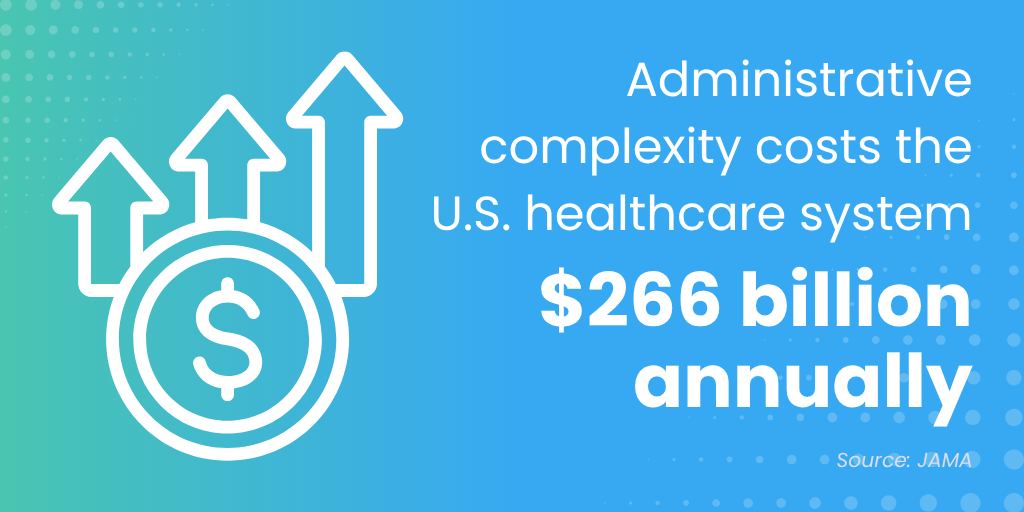4 min read
How Can a Healthcare Compliance Company Reduce Regulatory Risk?
Performance Health Partners
September 15, 2025

Every year, healthcare organizations face millions of dollars in penalties due to compliance violations—costs that a healthcare compliance company can help reduce. In fact, noncompliant healthcare organizations incur 72% more costs than compliant organizations, according to the Ponemon Institute. With healthcare organizations already spending an average of $8.9 million on compliance, these added penalties can create enormous financial strain when addressing adverse events tied to noncompliance.
Often, these violations occur not because of negligence, but because of outdated processes, siloed data, and inconsistent oversight. In an increasingly complex regulatory environment, even minor oversights can trigger audits, reputational damage, and patient safety concerns.
This is where the best healthcare compliance company can make a meaningful impact. By offering specialized compliance software, these companies enable healthcare organizations to proactively manage risk, ensure regulatory readiness, and foster a culture of continuous improvement. Rather than reacting to problems after they occur, healthcare organizations can use technology to stay ahead of risk and drive better outcomes across the board.
Below are some of the ways a healthcare compliance company solutions can help healthcare organizations reduce regulatory risk.
Proactive Risk Assessments & Chart Audits
Modern healthcare compliance software allows organizations to conduct real-time audits and assessments within a centralized platform. Instead of relying on sporadic manual reviews or post-incident evaluations, compliance teams can continuously monitor areas of risk.
Chart audits are easily collected and reviewed in a single system, improving consistency and allowing for trends to be identified early. Risk assessments, likewise, can be configured to scan for specific regulatory vulnerabilities—such as HIPAA compliance issues or improper billing practices—so corrective actions can be taken before they escalate.
This proactive approach is critical to preventing citations and fines, and it also supports long-term improvements in patient care quality and operational performance.
User-Friendly & Mobile Tools
A review of healthcare spending waste found that administrative complexity costs the U.S. healthcare system $266 billion annually.
One of the most impactful ways a healthcare compliance company can support better outcomes is by providing tools that are both intuitive and mobile-accessible.
When healthcare risk management software is easy to navigate, staff are more likely to engage with it—reporting issues, completing audits, and participating in compliance activities without hesitation or confusion. A user-friendly interface reduces training time, minimizes errors, and helps ensure that compliance tasks are completed accurately and on time.
Mobile accessibility further amplifies this impact. With tools that work seamlessly on smartphones and tablets, employees can capture observations, submit reports, or conduct assessments in real time, wherever they are in the facility. This immediacy leads to more accurate documentation and faster response times, while also removing the friction of outdated, paper-based processes.
The combination of mobility and usability empowers frontline teams and strengthens compliance at every level of the organization.

Centralized Tasks, Workflow & Triage Management
Once issues are identified, it’s vital that organizations have a way to triage and manage them efficiently. Healthcare compliance software helps teams organize tasks by severity, assign responsibilities, and track progress through resolution.
Detailed worklists and compliance automation tools keep the right people informed at the right time, reducing the likelihood of missed follow-ups or unresolved risk. Investigations, corrective actions, and documentation are all handled within the same platform, ensuring nothing falls through the cracks.
This structured process not only streamlines internal operations but also provides clear documentation in the event of a regulatory review.
Real-Time Dashboards and Reporting for Data-Driven Decisions
Effective healthcare compliance management depends on access to accurate, timely data. Top healthcare compliance companies offer real-time dashboards and customizable reports that allow teams to monitor trends, track outcomes, and identify high-risk areas.
With visibility into patterns such as repeated audit failures or delayed corrective actions, organizations can take targeted steps to address vulnerabilities. Dashboards also provide leadership with the insights needed to allocate resources wisely and demonstrate compliance efforts to external stakeholders.
Rather than managing by intuition, healthcare organizations gain the ability to act based on hard evidence.
Incident Reporting & Root Cause Analysis
Unreported incidents and ineffective follow-ups are among the most common sources of regulatory risk. Compliance software addresses this challenge by simplifying the incident reporting process and guiding users through a structured root cause analysis.
When staff can report patient safety events, policy violations, or workplace hazards quickly, anonymously, and easily, leadership gets a fuller picture of what’s happening on the ground. Root cause analysis tools then help teams move beyond surface-level explanations to understand why events occurred—and how to prevent them in the future.
This approach not only satisfies regulatory expectations but also reduces repeat incidents and improves care delivery, not to mention risk management in healthcare.
Scalability, Customization & Security
A modern healthcare compliance company understands that one-size-fits-all solutions are no longer sufficient. Scalable platforms allow organizations of all sizes—from small clinics to multi-site health systems—to manage regulatory compliance in healthcare efficiently without outgrowing their tools.
Customization is just as important. Healthcare providers need the flexibility to tailor audit templates, workflows, and reporting structures to match their specific regulatory environment, internal policies, and operational goals.
Equally critical is the issue of security. Compliance software must adhere to strict data protection standards, such as being HIPAA-compliant, to ensure that sensitive patient and organizational data remains secure.
In fact, the global average cost of a data breach was nearly $10 million in 2024, according to IBM.
With the rise of cyber threats in healthcare, a trusted healthcare compliance company prioritizes secure infrastructure, role-based access controls, and ongoing monitoring to protect data integrity.
When software is built with scalability, customization, and security at its core, organizations can confidently manage compliance today and into the future.
Embedding a Culture of Continuous Improvement
Healthcare compliance isn’t a one-time event; it requires an ongoing commitment to quality, transparency, and learning. A healthcare compliance company supports this mindset by offering tools that make continuous improvement part of everyday operations.
Internal audits can be scheduled routinely and benchmarked against best practices. Teams are empowered to investigate root causes rather than assign blame, fostering an environment where issues are viewed as opportunities for growth.
Over time, this approach builds trust, boosts staff morale, and leads to measurable improvements in safety and compliance outcomes.
Final Thoughts
In a healthcare environment where regulations are constantly evolving and stakes are high, relying on manual processes or fragmented systems is no longer sustainable. A healthcare compliance company equipped with robust, user-friendly software helps healthcare organizations move from reactive problem-solving to proactive risk management.
By streamlining audits, automating workflows, and providing real-time visibility into compliance activities, these companies give healthcare teams the tools they need to stay ahead of regulatory demands. When compliance becomes embedded in daily workflows rather than an afterthought, healthcare organizations are better equipped to protect both their patients and their reputations.
Ready to Strengthen Your Organization’s Compliance Program?
Our Best in KLAS compliance software is trusted by healthcare leaders nationwide to simplify regulatory requirements, reduce risk, and improve oversight. Connect with our team today to see how our solution can help you build a stronger culture of safety and compliance across your organization.


